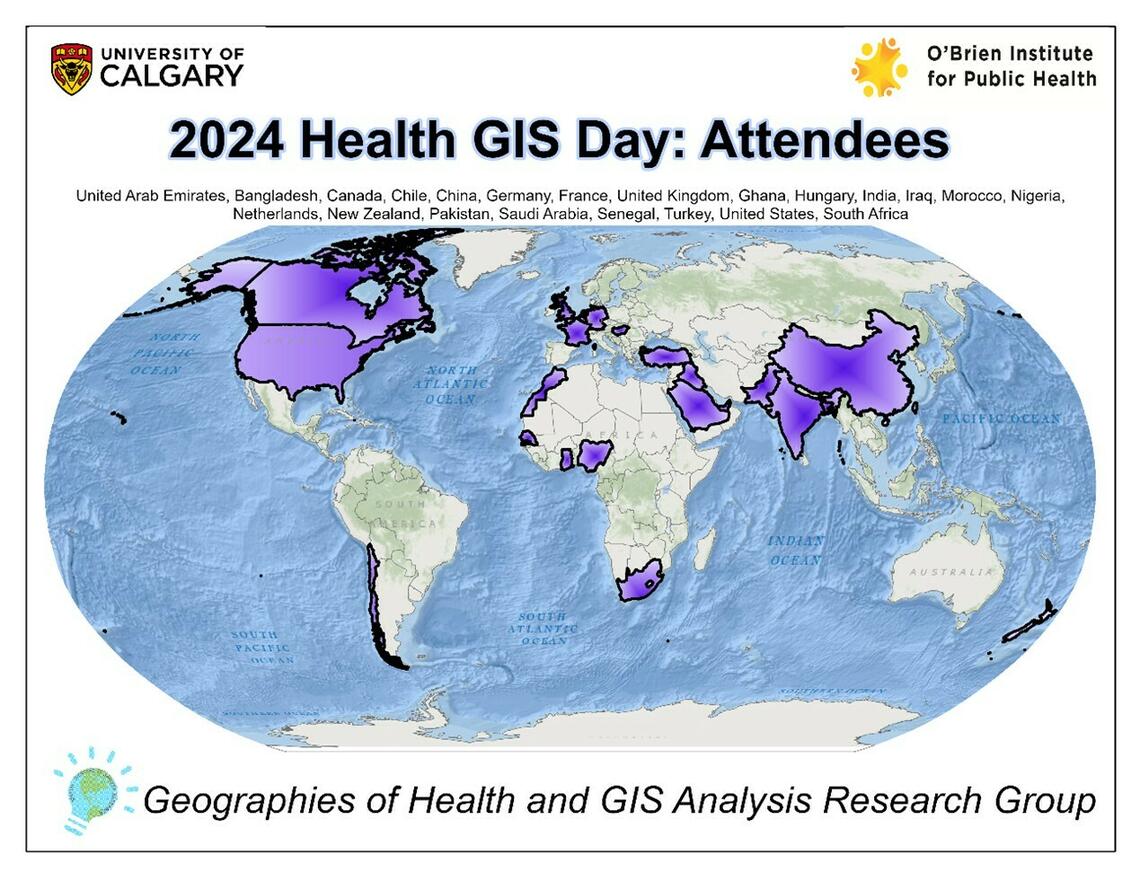Geography of Health and GIS Analysis Research Group
Health geography studies the relationships between health and place. It is concerned with the interactions of people, society, place, space, and the environment. Health geography is known for its contributions to understanding the spatial pattern and diffusion of disease, environmental exposures, and the location and accessibility of health services. Health geographers practice and promote spatial thinking in the health sciences.
Geographies of health encompass a plurality of research paradigms and methodologies, including Geographic Information Systems (GIS) and spatial data analysis. The Geography of Health (GoH) group supports geographical enquiry and spatial thinking in population and public health. The GoH group serves as a hub, connecting geographical expertise with health research and practice.
Recent and ongoing activities of the GoH group include the organization of high profile events and successful hands-on workshops to disseminate knowledge and awareness of health geography and GIS.
Updates
Health Geography Scholarship
Exciting updates! We are launching the Health Geography Scholarship. Offered through the Geography of Health and GIS Analysis Research Group, this new opportunity supports University of Calgary students engaged in research that intersects geography and health.
Health Geography Scholarship Terms of Reference
Health Geography Scholarship Application Form
2024 Health GIS Day
Our 2024 health GIS day was a memorable event, with a record number of excellent quality contributions, and participation from all the continents, as our map below proudly shows.
GIS day is an international event, held on the third Wednesday of November, during Geography Awareness Week. The GOH study group organizes a health-GIS day every second year, and 2024 was our fifth event. We were fortunate to host two fascinating keynote speeches: Dr. Rocco Panciera, Geospatial health specialist with UNICEF, discussed the use of geospatial technologies on the frontline of health research; Dr. Nigel Waters, Professor Emeritus of Geography, took us through five ways in which GIS can help in the next pandemic. You can check them out below under the Event section along with all the lightning talks, which took us from Canada to India, Pakistan, New Zealand, the United States, China, and to Nigeria, and discussed a range of topics connecting public health with our environments and our societies: from prevention to accessibility, emergency response, environmental risk to urban environments; from food to child labour to mental health. Always through the lens of spatial thinking.
In this 2024 health-GIS day, more than ever, we saw our participants engage in questions and discussions that reached the core of health GIS analysis. Well done GOH, well done GIS people all over the world! We look forward to having you at our next Health GIS Day in 2026.



